App vs Web: Which should your business invest in?
With technology ever-changing, it can be difficult to decide which routes to invest in for your business. Mobile apps seem popular, but will they prove to be just another short-lived trend? Is the mobile web here to stay, or has it outlived its usefulness?
Difference Between Mobile Application and Mobile Website

A mobile website, like a desktop website, is made up of HTML pages that are viewed over the internet. If on IOS – you’ll probably use your Safari browser, if on Android – Chrome.
A mobile application is designed to run specifically on a mobile device and tablets and often interacts with existing phone features (location, contacts, notifications, etc.).
The difference is mainly that apps are more customized for mobile devices and their features while web adjusts its desktop website to fit smaller screens.
The Case for Mobile Web
Many believe that use of the mobile web is declining against the forces of mobile apps. While it’s true that mobile apps are still used more than mobile web (for now), a 2016 US Mobile App report from comScore gives this insight:
A comparison of the Top 1000 Apps vs. the Top 1000 Mobile Web Properties shows that despite apps dominance in usage time, mobile web is responsible for big audiences on mobile. Mobile web audiences are almost 3x the size and growing 2x as fast as app audiences.
Cuts out an extra expense.
If you’re approaching web design the right way, you’ve chosen responsive design for your business. At this point it’s pretty much a standard for websites.
A responsive website adjusts to each screen size it is viewed on, removing the need to create different designs for mobile and desktop. If you have this, a mobile web design won’t be an added cost, it’ll be integrated with your regular web design.
The same can’t be said for mobile apps, which require separate app development.
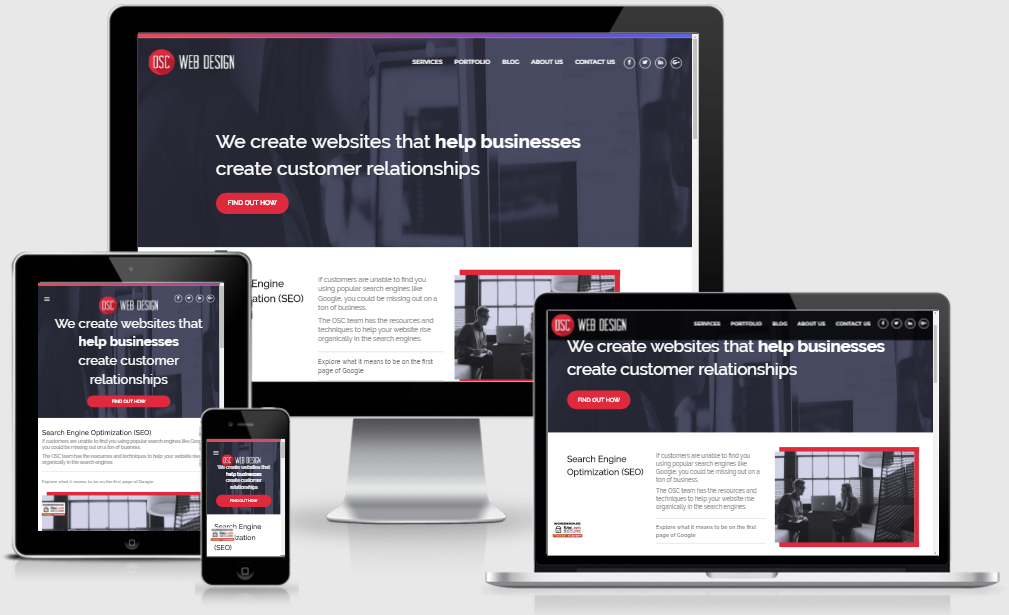
More time to focus on search engine optimization.
The time and money you save not developing a mobile app, can be arguably better invested in search engine optimization. Ranking higher in search engines will help your business grow desktop website traffic as well as mobile web traffic.
Sometimes it’s better to focus on excelling in fewer avenues rather than stretching your resources too thin.
What the stats say:
Is it possible that more qualified leads can be found via mobile web? These stats from Google show where people begin when researching topics on mobile devices.
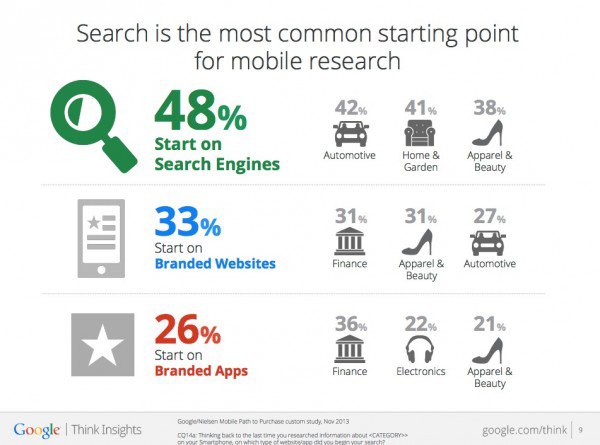
[/su_frame]
While app usage still surpasses mobile web, this data from comScore shows a majority of users are using the same apps. Facebook and Google are the big players here. If you’re just starting out and want to be discovered, you’re competing for a small piece of what’s left of the pie.
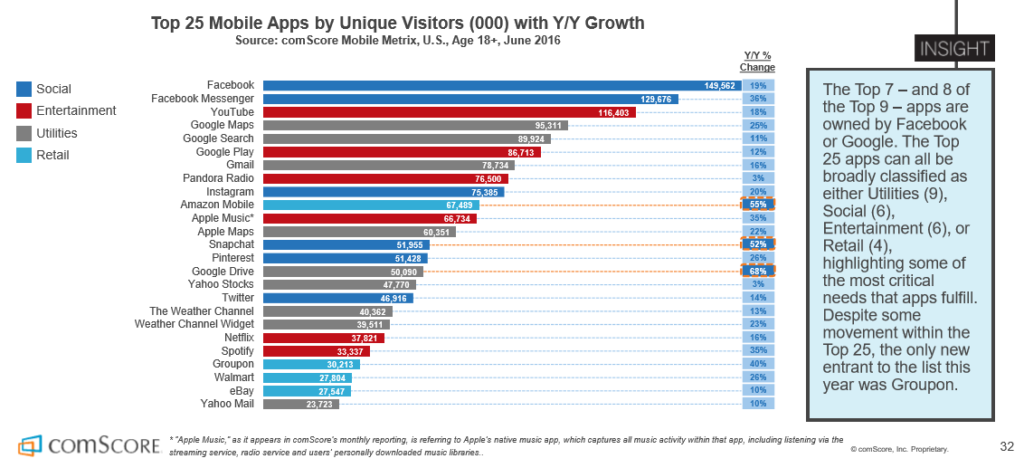
The Case for Mobile Apps
Every study and data across the web will tell you the same thing: mobile apps are used far more than mobile web. So, ideally, you own a mobile app that people love. After users try out your app and decide they love it, they’ll be greeted by your app each time they check their phone. No more being forgotten!
Alert users immediately.
What’s the best way to get your audience’s attention? Unless you can get in front of them in person and tap them on the shoulder, it’s their smartphones.
With the mobile web, when a user navigates away from your website, there’s not much you can do to bring them back. Yes, there’s ad retargeting – but mobile notifications are much more effective.
“Data is the new currency.”
It’s true that customer data is becoming a main focus for most marketers and businesses. Mobile apps can serve as data collecting machines, recording information like:
- Location.
- User accounts.
- Device hardware (photos, video).
- Personal information (bookmarks, calendar events, contact data, even browser history).
Some of this information is a little scary, but keep in mind that users must accept whatever the terms are before downloading an app. Data will allow you to improve conversion rates and move your brand in the right direction.
You don’t have to be creepy either. Simply collecting a user’s email and name for them to log into an app will be enough to help you market to them in the future.
More personalization.
With all this data, you’re able to create a more personalized experience that will drive conversions. One of the big advantages of an app is that users don’t need to remember passwords and fill out new information, this is a big drive for customer loyalty.
People hate taking the time to register and complete new accounts. Apps allow them to save time and keep ideas on one platform.
What the Stats Say
Data from Yahoo’s Flurry analytics, as you can see below, show pretty clearly that the majority of time on mobile devices is spent in apps.
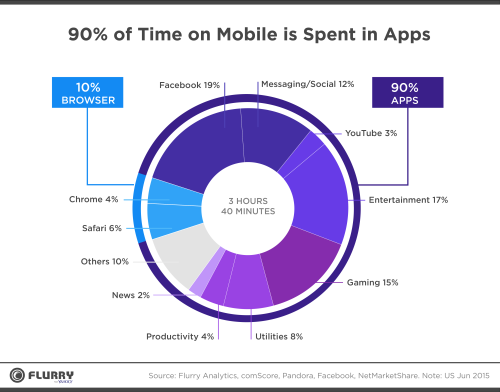
If you’d like to build customer loyalty, these findings from comScore show how dramatically loyal app users are after they get started with one.
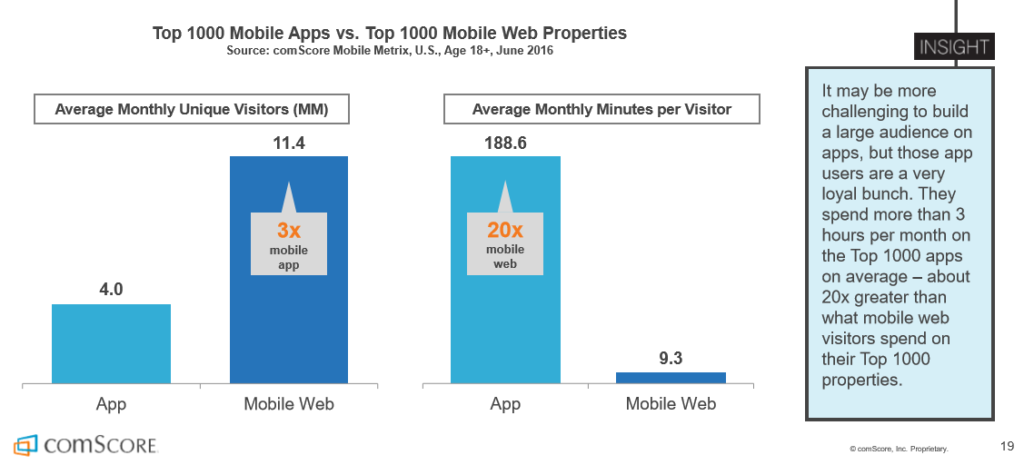
So.. app vs. web: which should your business invest in?
Now that we’ve gone over the facts on each, it’s time for us to answer your original question.
It all comes down to whether or not a mobile app is right for your business. If it is, you should definitely be able to agree with the following statement:
A mobile app will help my business provide a service that would not be as successful in mobile web.
You should also probably be able to agree with these points as well:
- My service is time-sensitive: users need notifications so they can respond quickly.
- The user’s location is needed for the service to function correctly.
- My app will be integrated with certain phone features and other apps.
- My app improves real-world experiences.
Unless you want to compete head-to-head with app giants, it looks like the best opportunity for new apps are ones that facilitate with real life.
People spend too much time on Facebook already. Create a #mobileapp that helps them do REAL things quickly and efficiently.”
@osc_webdesign
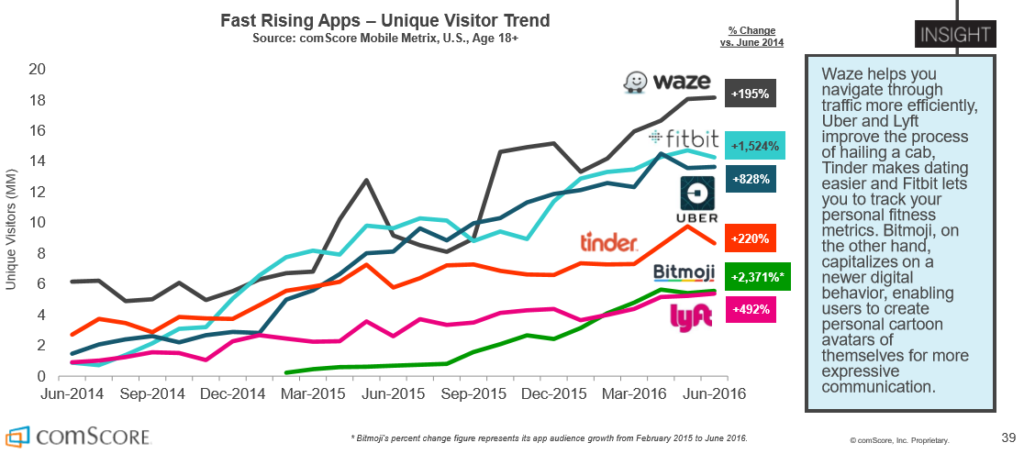
Have you decided if a mobile app is right for your business? Leave us a comment below!


